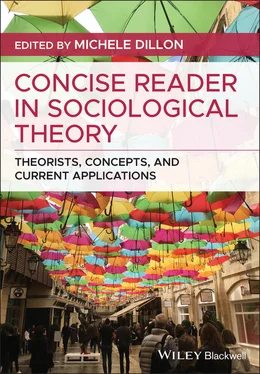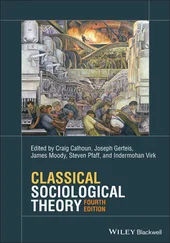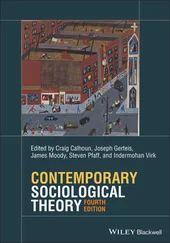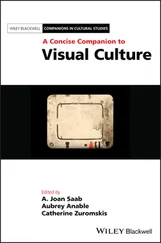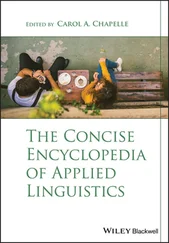1 ...6 7 8 10 11 12 ...19 By virtue of positive law . (Say, t. II, p. 4.)
What does one acquire with capital, with the inheritance of a large fortune, for instance?
“The person who [either acquires, or] succeeds to a great fortune, does not necessarily [acquire or] succeed to any political power [.…] The power which that possession immediately and directly conveys to him, is the power of purchasing ; a certain command over all the labour, or over all the produce of labour, which is then in the market.” ( Wealth of Nations , by Adam Smith, Vol. I, pp. 26–27 [Garnier, t. I, p. 61].) 5
Capital is thus the governing power over labour and its products. The capitalist possesses this power, not on account of his personal or human qualities, but inasmuch as he is an owner of capital. His power is the purchasing power of his capital, which nothing can withstand.
Later we shall see first how the capitalist, by means of capital, exercises his governing power over labour, then, however, we shall see the governing power of capital over the capitalist himself.
What is capital?
“A certain quantity of labour stocked and stored up to be employed.” (Adam Smith, op. cit., Vol. I, p. 295 [Garnier, t. II, p. 312].)
Capital is stored‐up labour .
(2) Fonds , or stock, 6 is any accumulation of products of the soil or of manufacture. Stock is called capital only when it yields to its owner a revenue or profit. (Adam Smith, op. cit., p. 243 [Garnier, t. II, p. 191].
The profit or gain of capital is altogether different from the wages of labour . This difference is manifested in two ways: in the first place, the profits of capital are regulated altogether by the value of the capital employed, although the labour of inspection and direction associated with different capitals may be the same. Moreover in large works the whole of this labour is committed to some principal clerk, whose salary bears no regular proportion to the ||II,2| capital of which he oversees the management. And although the labour of the proprietor is here reduced almost to nothing, he still demands profits in proportion to his capital. (Adam Smith, op. cit., Vol. I, p. 43 [Garnier, t. I, pp. 97–99].) 7
Why does the capitalist demand this proportion between profit and capital?
He would have no interest in employing the workers, unless he expected from the sale of their work something more than is necessary to replace the stock advanced by him as wages and he would have no interest to employ a great stock rather than a small one, unless his profits were to bear some proportion to the extent of his stock. (Adam Smith, op. cit., Vol. I, p. 42 [Garnier, t. I, pp. 96–97].)
The capitalist thus makes a profit, first, on the wages, and secondly on the raw materials advanced by him.
[…]
We proceed from an actual economic fact.
The worker becomes all the poorer the more wealth he produces, the more his production increases in power and size. The worker becomes an ever cheaper commodity the more commodities he creates. The devaluation of the world of men is in direct proportion to the increasing value of the world of things. Labour produces not only commodities: it produces itself and the worker as a commodity – and this at the same rate at which it produces commodities in general.
This fact expresses merely that the object which labour produces – labour’s product – confronts it as something alien , as a power independent of the producer. The product of labour is labour which has been embodied in an object, which has become material: it is the objectification of labour. Labour’s realisation is its objectification. Under these economic conditions this realisation of labour appears as loss of realisation for the workers; objectification as loss of the object and bondage to it ; appropriation as estrangement, as alienation .
So much does labour’s realisation appear as loss of realisation that the worker loses realisation to the point of starving to death. So much does objectification appear as loss of the object that the worker is robbed of the objects most necessary not only for his life but for his work. Indeed, labour itself becomes an object which he can obtain only with the greatest effort and with the most irregular interruptions. So much does the appropriation of the object appear as estrangement that the more objects the worker produces the less he can possess and the more he falls under the sway of his product, capital.
All these consequences are implied in the statement that the worker is related to the product of his labour as to an alien object. For on this premise it is clear that the more the worker spends himself, the more powerful becomes the alien world of objects which he creates over and against himself, the poorer he himself – his inner world – becomes, the less belongs to him as his own. It is the same in religion. The more man puts into God, the less he retains in himself. The worker puts his life into the object; but now his life no longer belongs to him but to the object. Hence, the greater this activity, the more the worker lacks objects. Whatever the product of his labour is, he is not. Therefore the greater this product, the less is he himself. The alienation of the worker in his product means not only that his labour becomes an object, an external existence, but that it exists outside him , independently, as something alien to him, and that it becomes a power on its own confronting him. It means that the life which he has conferred on the object confronts him as something hostile and alien.
||XXIII/ Let us now look more closely at the objectification , at the production of the worker; and in it at the estrangement , the loss of the object, of his product.
The worker can create nothing without nature , without the sensuous external world . It is the material on which his labour is realised, in which it is active, from which and by means of which it produces.
But just as nature provides labour with [the] means of life in the sense that labour cannot live without objects on which to operate, on the other hand, it also provides the means of life in the more restricted sense, i.e., the means for the physical subsistence of the worker himself.
Thus the more the worker by his labour appropriates the external world, sensuous nature, the more he deprives himself of means of life in two respects: first, in that the sensuous external world more and more ceases to be an object belonging to his labour – to be his labour’s means of life ; and secondly, in that it more and more ceases to be means of life in the immediate sense, means for the physical subsistence of the worker.
In both respects, therefore, the worker becomes a servant of his object, first, in that he receives an object of labour , i.e., in that he receives work ; and secondly, in that he receives means of subsistence . This enables him to exist, first, as a worker , and, second, as a physical subject . The height of this servitude is that it is only as a worker that he can maintain himself as a physical subject , and that it is only as a physical subject that he is a worker.
(According to the economic laws the estrangement of the worker in his object is expressed thus: the more the worker produces, the less he has to consume; the more values he creates, the more valueless, the more unworthy he becomes; the better formed his product, the more deformed becomes the worker; the more civilised his object, the more barbarous becomes the worker; the more powerful labour becomes, the more powerless becomes the worker; the more ingenious labour becomes, the less ingenious becomes the worker and the more he becomes nature’s servant.)
Читать дальше
